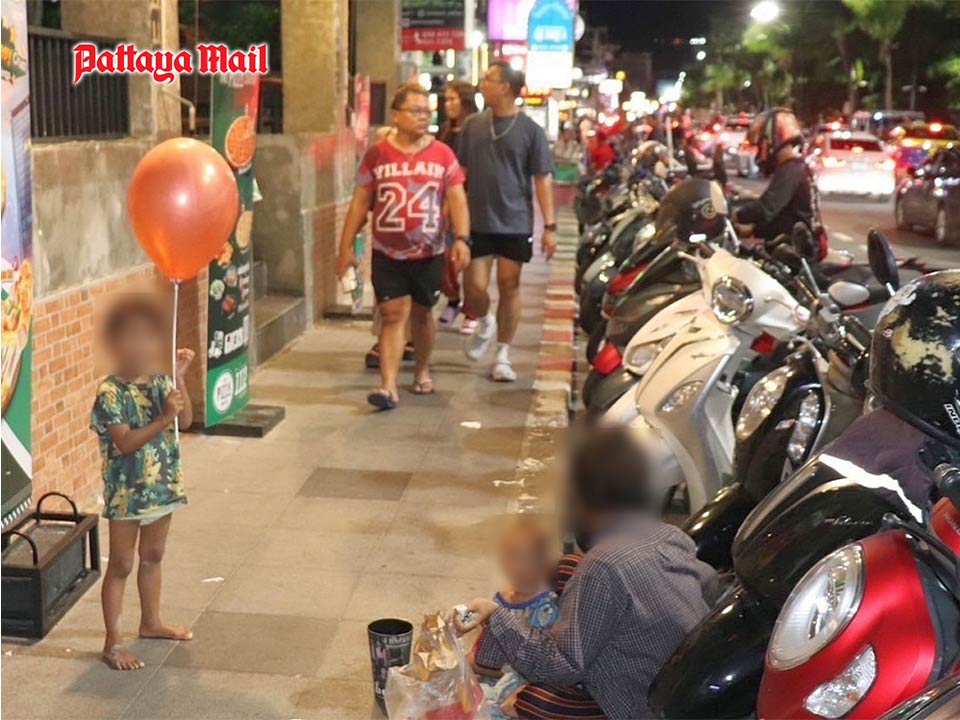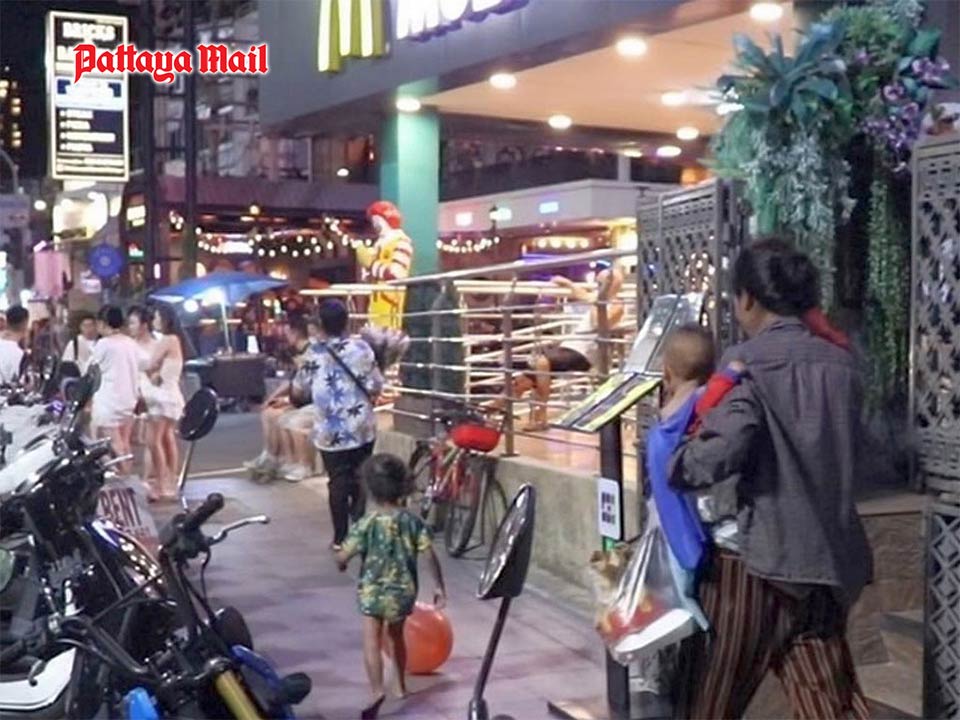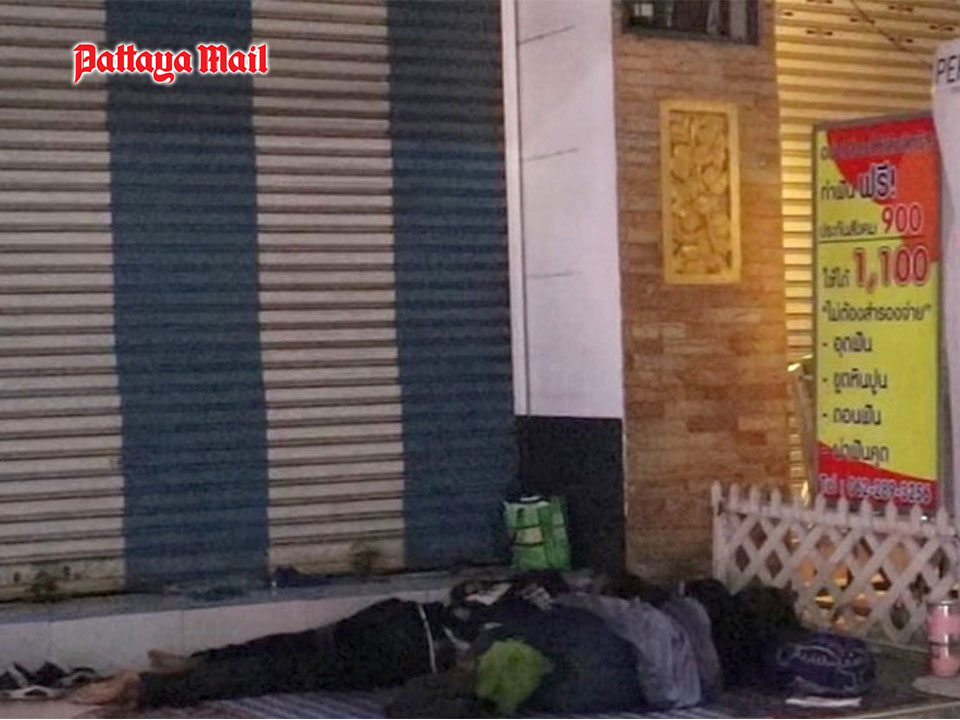
PATTAYA, Thailand – The picturesque beaches and bustling streets of Pattaya are marred by a growing and heart-wrenching issue: begging. Recent complaints have drawn attention to foreigners begging with young children to elicit sympathy from tourists. On July 7, a stark example was observed when a foreign woman, accompanied by two young children, was seen sitting on the beachfront road near a popular shopping mall, using a cup to beg for donations.
When questioned, the woman appeared anxious, covering her face and mimicking fainting. She claimed to have a toothache and quickly took out antibiotics from her bag. Despite her apparent distress, tourists continued to drop coins into her cup. Upon further inquiry, the woman revealed that she is Cambodian, has a Thai partner, and has been living in the Naklua area for over 10 years. She explained that she begs at night to earn money for dental treatment before hastily packing up and leaving to buy pain relief medication.
This incident is not isolated. At the Wat Chai Mongkhol Market in South Pattaya, an elderly man with severe disabilities was found begging. Missing both arms and blind in his right eye, he sat shirtless to display his disabilities, using a coconut shell to collect donations. He claimed that his disabilities left him with no other option. The man, who identified himself as Thai but without an ID card, has been living in Pattaya for over 40 years. He showed the money he had collected, mostly 20-baht bills, stacked in bundles of 100 baht. He explained that he had never been arrested because officials felt sorry for him and merely warned him to go home.

In addition to these individual cases, numerous homeless individuals can be seen sleeping in front of closed shops around the city. Despite on-going efforts by relevant authorities to address the issue, the problem of homelessness and begging remains prevalent in Pattaya.
This situation calls for a multi-faceted approach. While sympathy for those in dire straits is natural, and compassion is a hallmark of Thai culture, systemic issues must be addressed. The presence of children in begging scenarios is particularly troubling and raises questions about child welfare and exploitation.
Local authorities need to strengthen their efforts in providing support and rehabilitation for the homeless and disabled. This includes ensuring access to proper identification, healthcare, and social services. For foreigners, clear regulations and support mechanisms should be established to prevent exploitation and ensure their well-being.

Moreover, public awareness campaigns can help tourists and locals understand the implications of giving money directly to beggars. Donations should be directed towards organizations that can provide long-term assistance rather than perpetuating a cycle of dependency.
The sight of individuals begging on the streets of Pattaya is a stark reminder of the social issues that persist in our society. Addressing these challenges requires compassion, coordinated efforts by authorities, and a commitment to creating sustainable solutions. Only then can we hope to see a Pattaya where everyone has the opportunity to live with dignity and security.








